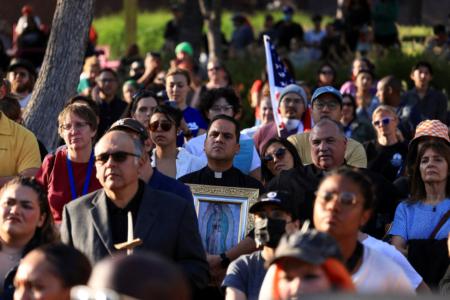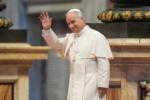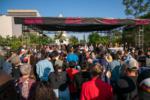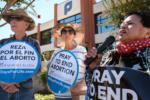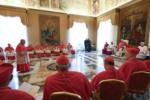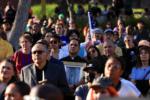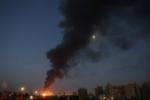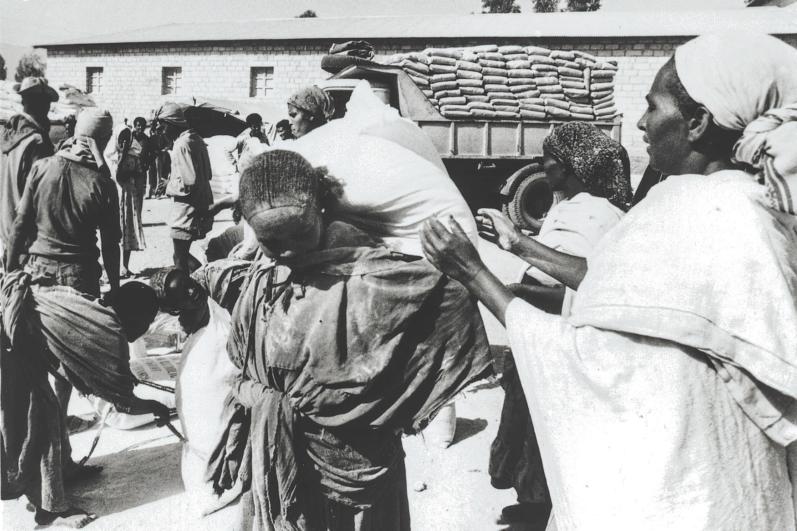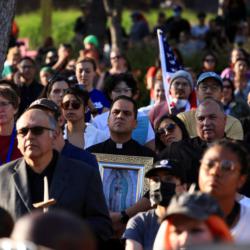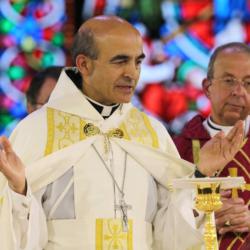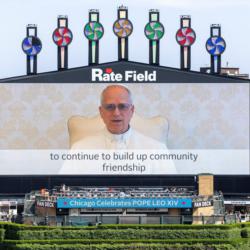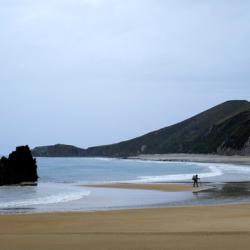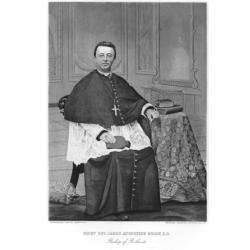Father Joy reflects on global aid work with Catholic Relief Services
BRAINTREE -- Every time Father Bill Joy visited a new country with Catholic Relief Services, the locals always wanted to know two things: If he knew the pope, and if he knew Michael Jordan.
Father Joy, who is currently the archdiocese's episcopal vicar for clergy and assistant vicar for administration, served as director of church affairs for CRS, the charitable arm of the U.S. Conference of Catholic Bishops, from 1986 to 1993. He estimates he visited almost 30 countries during those years, mostly in Africa.
It was the people he met in those seven years with CRS that he remembers best.
"Your adrenaline is really rushing," he said. "It's the downtime when you have to take it all in, but it's an area of time when you see the good, bad, and the ugly in people. And oftentimes the good just outweighs the bad."
In 1986, Father Joy was studying at the Labor Center of Umass Amherst and living in St. Brigid's Parish there. CRS staff under then-Chairman of the Board Archbishop Edward O'Meara of Indianapolis approached Father Joy with the job as director of church affairs.
"They needed somebody in a hurry to do a lot of work for them, because Ethiopia had just really exploded onto the scene," he said, referring to the famine that had recently devastated the country. "It happened very quickly, and CRS became inundated."
The Ethiopian famine was the largest of its kind in the world at that point.
"CRS was the main agency with boots on the ground there, with staff there," he said. "And it became the lead agency for all the food relief, the famine relief. And they needed some people to help coordinate that, and they needed a priest to be a liaison with the staff and with the bishops in the various dioceses in the United States."
When he arrived in Ethiopia, he saw small villages whose residents were foraging for food.
"There were just a lot of death," he recalled.
He found it difficult to describe. CRS and U.S. Marines distributed food from trucks. Thousands of hungry people waited in line for their portion.
"The conditions were just terrible," Father Joy said. "It was hot, dusty, and people almost fighting for food."
He responded to requests for assistance, processed information about the crises, supported the often-overworked staff, and helped senior staff map out plans for relief efforts. He said he found solace in moments of prayer and celebrating Mass. Even non-Catholics would come to Mass just to have a moment's peace.
"It was a Marxist country, not necessarily a Catholic country in any way, shape, or form," he said. "The Catholic Church was a very small minority, but being able to be the agency, to be the group that could reach out to various other groups that were there and serving them, no matter what the need was or who they were, and just to be there with them in this time of crisis."
Less than one percent of Ethiopia's population is Catholic. Most Ethiopians are either Ethiopian Orthodox or Muslim. Father Joy had to help these small local churches mount a large-scale aid operation, then return to the U.S. and explain to stateside dioceses what their donations were being used for. He served as a bridge between CRS, local churches, and the community.
Before going to Ethiopia, he oversaw CRS agricultural and water projects in Peru, where he met with local clergy and bishops. His job was to represent CRS to the world and let the local church know that the U.S. church was with them. He was also responsible for providing the sacraments and spiritual support to CRS staff, especially in countries where Christians were a minority. CRS staff throughout the world requested priests for that reason. He said he was proud of the fact that CRS went "into a situation that nobody else was going into."
"I think it's given me an appreciation for the Catholic Church with a small c, catholic being universal," he said, "and seeing how the faith has lived in different cultures, different ways, but being the one, same faith community. And an appreciation of how the church in so many ways, not having the advantages of the material goods that we have here, is still able to reach people, teach people, preach to people, and to bring the presence of the Eucharist to people."
He recalled many difficulties working during the Ethiopian famine, including lack of communications and electricity. The only way CRS staff could reach each other was with walkie-talkies.
"It was difficult to communicate and to move around," he said. "There was no mobility. It was difficult because of the terrain and the other things we didn't have."
As a South Shore native, it came as a shock for Father Joy to adapt to environments with no electricity or running water.
"You can see it on television, but when you see it up close and personal, it's different," he said. "And seeing some of the results of hunger, especially with children and older people, it was very debilitating."
He also said, in the aftermath of disasters, he saw endemic rape and domestic violence.
"In some of the countries where there are these things happening ... people act out in various ways, and unfortunately becomes part of the results, to be violence and bodily harm," he said.
In Africa, he saw famine and tribal wars.
"When they had those tribal wars, farmers couldn't go out into the field, and their crops were destroyed, and the animals destroyed," he said.
He said that CRS gave each local church the resources it needed to "rebuild itself" and establish Catholic Charities outposts in their respective dioceses. With USAID, CRS established a "delivery system" to help the churches provide social services, such as food and medicine. They helped implement agricultural programs to teach efficient farming methods to the locals.
"It was a number of different types of expertise that are needed," Father Joy said. "You'd have people in famine areas where they need people who were very good with the infant nutrition and child nutrition, (they) would go to a village and bring food, maybe every other week."
They would then weigh the children to see if the food was providing them with proper nutrition. CRS workers also had to check for disease and other health issues in each village.
"You meet a lot of really dedicated nurses and doctors and others who are really dedicated to the task at hand," Father Joy said.
In Somalia, he saw an old school bus pick up the bodies of those who had died of contagious diseases. He sometimes spent the night in tent encampments with the U.S. Marines protecting the airfields where relief supplies were brought in. Father Joy recalled celebrating Midnight Mass in the desert with those Marines and Bishop John H. Ricard, then auxiliary bishop of the Archdiocese of Baltimore.
"It was very moving," he said. "You could feel the presence of the Lord. You really could see the Marines and the stars in the sky, and the whole scene there. There's no electricity around for literally miles and miles, and you had a sense of God's presence there in a different way that you'd have at the Midnight Mass with the organ and the hymns and the incense. And it was a very different feeling in the presence of the Lord."
In 1999, even after he was back in the Archdiocese of Boston, serving as pastor of St. Angela Merici Parish in Mattapan, CRS once again called on him to help visit refugee camps in Kosovo and Macedonia. Technology had improved since his time in Africa (people in the camps had cell phones), but the human need remained the same.
"They didn't have personal freedoms, and there were people burning their homes," he said.
His work brought him in contact with selflessness in the face of suffering all over the world. He said there were moments when people would express their gratitude to the aid workers and share what little they had with others.
"If they had a small crust of bread, they'd share it with somebody else."
His time with CRS helped him realize that no matter where in the world he was, Catholics gathered to celebrate the same Eucharist.
"It gives you an appreciation of the faith and how it can be lived so differently and so beautifully," he said.
